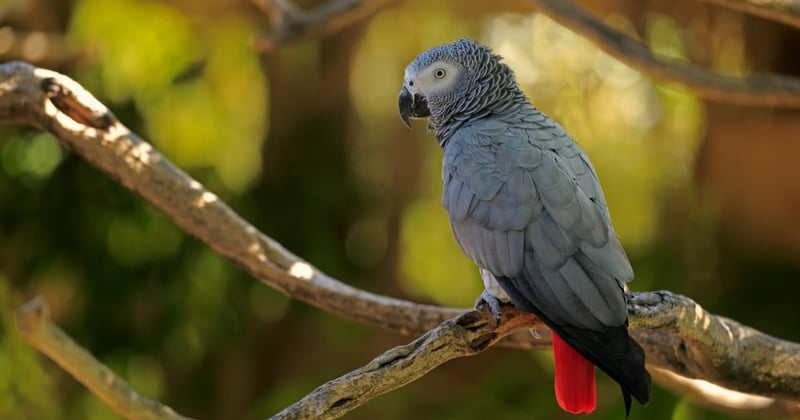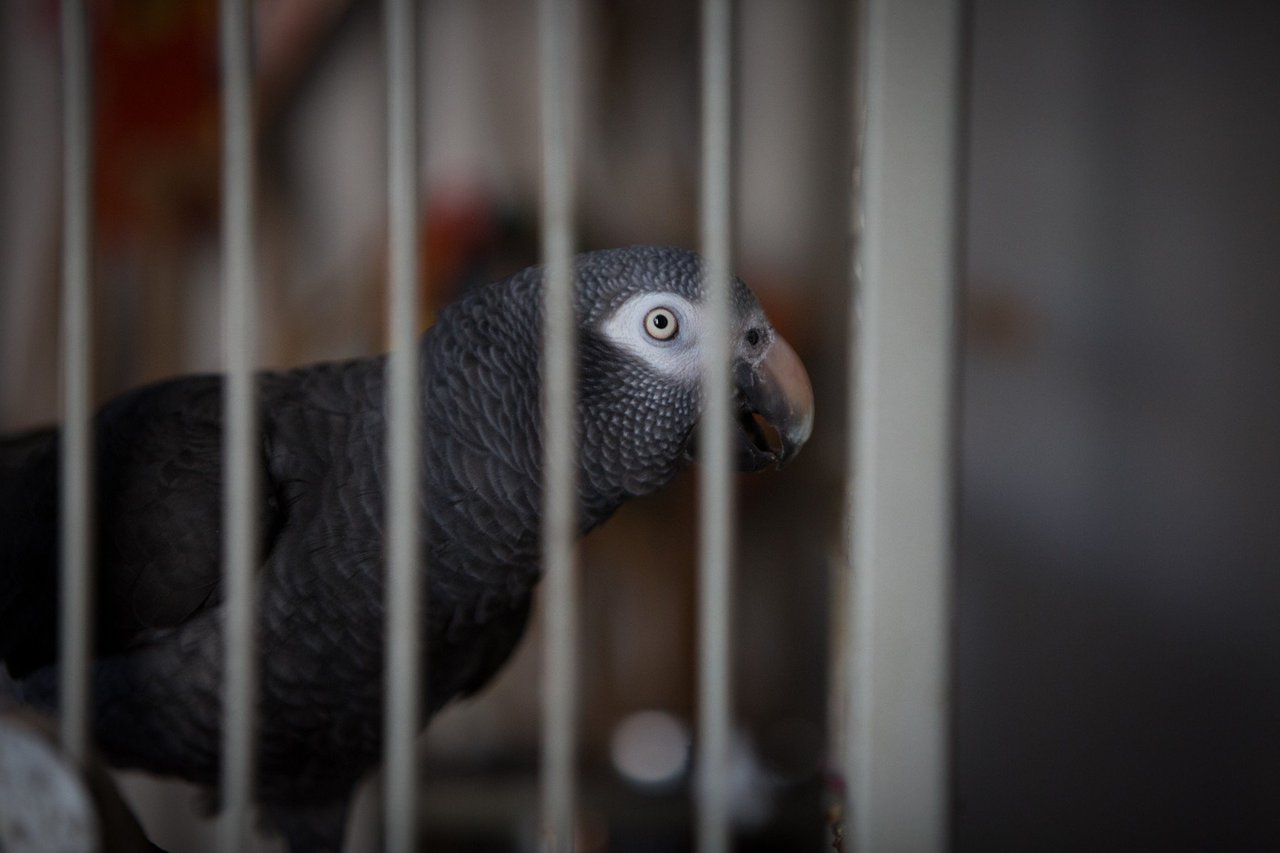
From budgies to macaws, parrots are charismatic, social animals. Unfortunately, these qualities also make them popular in the wildlife trade.
Every year in the US alone, tens of thousands of parrots are bred in cruel mills, similar to puppy mills, to be sold as pets even though they are wild animals who don’t belong in human homes.
Intense Socialization Needs
All parrots need significant interaction and socialization. In the wild, parrots are surrounded by their peers and potential mates. Parrots typically choose a single partner, but these deep bonds are often broken or never even form in captivity. When their social needs aren’t met, parrots may develop behavioral problems, including biting, screaming, or self-mutilation such as plucking out their feathers. It’s also standard for baby birds in mills to be separated from their parents, shipped in crates across the country to retailers like PetSmart and Petco, and hand-fed by employees rarely trained in bird care. This separation compromises their ability to develop into healthy adults. Further, many baby birds die from improper care and handling, such as burns that result from being fed formula that is too hot.
Discarded by the Pet Industry
Due to misinformation pushed by the pet industry, countless parrots are relinquished to shelters or sanctuaries every year by people who purchased them without understanding the challenges of bringing a wild animal into their homes. Shelters struggle to find appropriate, loving homes for these animals because caring for them requires significant time and resources. Many species also have long lifespans (some between 20 and 80 years). It’s our responsibility to protect these birds—who have no wild home to return to—by supporting accredited sanctuaries, rescues, and shelters engaged in bird rescue.
No Cage is Big Enough
Foster Parrots, Ltd. is a nonprofit organization dedicated to the rescue and protection of parrots and other captive wild animals. They’re also educators and advocates for parrots living in captivity who have been exploited by the pet trade. At their Rhode Island sanctuary, they provide “place, peace and protection for captive parrots” and work “from the belief that parrots and all wild animals should be free.” Accredited by the Global Federation of Animal Sanctuaries, Foster Parrots is held to extremely rigorous standards, ensuring animals receive the highest levels of care for the rest of their lives.
Foster Parrots is working on the front lines to protect parrots. They receive an average of one to two surrender requests every day from people no longer willing or able to care for their parrots.
“The average pet guardian is ill-equipped to meet the physical, social and psychological needs of parrots in the home environment, and this is what precipitates the behavioral problems and human-avian conflicts that result in an overwhelming flood of unwanted parrots entering the shelter system. There are not enough parrot rescue organizations or sanctuaries in the country to shoulder the crisis, and yet, the breeding industry continues to pump millions of parrots into the market, and pet retailers continue to promote these flighted, wild animals as pets. The cruelty needs to stop. Wild animals belong in the wild. No Cage is Big Enough.” - Karen Windsor, executive director of Foster Parrots
Image Source: Instagram post shared by Foster Parrots Ltd. (@foster_parrots)
Like Foster Parrots, we’re working to create a world where wild animals are free by moving the retail pet industry to end all wild animal sales, from parrots to lizards to snakes. You can help by urging PetSmart to take a critical first step to recognize animals aren’t products—and wild animals don’t belong on store shelves—by phasing out the sale of reptiles and amphibians in its stores.

